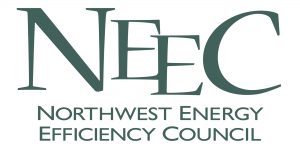The Post-2011 Review is an opportunity for BPA to engage with customers and stakeholders in a review of BPA’s energy efficiency Post-2011 framework, which took effect on October 1, 2011. The framework aligned the agency’s energy efficiency program with BPA’s tiered rates methodology. At the conclusion of Phase 1 of BPA’s Energy Efficiency Post-2011 public process (August 2010), BPA committed to a public review of the framework. BPA is beginning the review process by performing informal outreach to customers and stakeholders.
The purpose of this outreach is twofold:
Issue identification and scoping: BPA is looking to identify what is working and what is not working about the Post-2011 framework. Proposed solutions to what is not working are welcome, but your focus should be on identifying what you do and do not like about the Post-2011 framework. Upfront "scoping" of important issues will enable more structured and productive formal engagement later in the Review.
Gain feedback on process approach: BPA is looking to identify stakeholder preference on the best process approach to the Post-2011 Review.
BPA is seeking feedback on: 1) which issues associated with the Post-2011 framework you find most in need of revision, as well as elements of the framework that you most support; and, 2) which process approach (see the three options described below), or other variations, you favor.
BPA has identified three options and wants your opinion on the preferred course:
1) No Significant Engagement in FY13: after the informal outreach concludes in June, no significant engagement would take place in FY13. Post-2011 issues may come up in the normal course of customer relations, but formal engagement (e.g., regional public meetings) would not occur until FY14, likely around Jan-Mar.
2) Formal Engagement in FY13: after the informal outreach concludes in June, BPA would hold regional public meetings in July-Aug to discuss issues not dependent on data and then again in Jan-Mar 2014 to discuss those issues dependent on two years of data.
• This option takes the position that some issues can be discussed in FY13 prior to having two years’ worth of data and that discussion in FY13 and FY14 should both take place in the form of formal regional public meetings.
3) Informal Engagement in FY13: after the informal outreach concludes in June, BPA would find an informal way (e.g., conference calls or working groups) to engage stakeholders in July-Aug to discuss issues not dependent on data and then have formal meetings in Jan-Mar 2014 to discuss those issues dependent on two years of data.
• This option takes the position that some issues can be discussed prior to having two years’ worth of data and that discussion in FY13 should be informal with formal public meetings taking place in FY14.
Any comments on these issues should be directed to Steve Weiss ([email protected]) by June 3rd.
